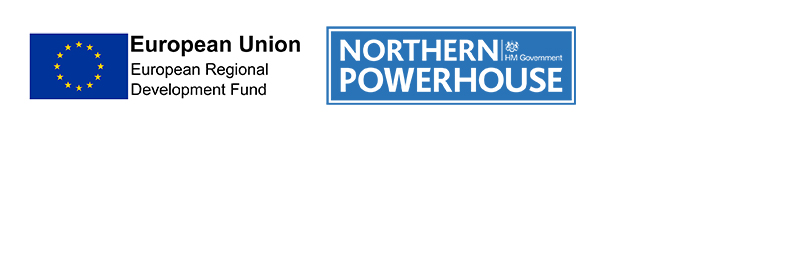The Health Innovation workshop that helped Mindsight prepare for business growth

David Scholes was in the early stages of setting up a business in and around mental health and wellbeing when he heard about the ‘Innovation for Growth’ workshop delivered as part of Lancaster University’s Health Innovation Campus.
“Coming from a creative marketing background, yet having focused more and more on social enterprise work – as well as going through my own personal journey – I was passionate about doing something to help people, but without just doing the same as everybody else,” he explains.
“The workshop was clearly for that kind of innovative thinking: the clue is the title. I thought right, it’s health-driven, which is the arena I want to work in, it’s about planning your business to deliver into that sector, and it’s with the University, which might link into some additional support I didn’t know about. Fantastic - ticks all the boxes!”
Based in Burnley and concentrating initially on the Lancashire-to-Manchester area, Mindsight aims to act as a ‘wellbeing architect’, going into businesses, educational establishments and charitable organisations to look at what they are doing and not doing in the area of wellbeing and mental health. Out of this diagnostic will come the plans and groundwork to deliver a practical, sustainable, culture-changing service, relevant to their needs.
David’s ‘lightbulb moment’ came when facilitating a project to address staff absence resulting from anxiety within a large call centre operation. “I realised that the business benefits – the return on investment, increased retention and reduced absence – will happen anyway, if we flip the focus and make looking after people the primary objective.”
He says the workshop helped to validate his thinking in this regard. “The content delivered by actual business practitioners was liberating in many ways, in that they shared both successes and failures and showed how you could learn from each. It took away my initial fears about my own ability to do this.”
In tandem with this confidence boost, he drew inspiration from the interaction with other businesses. “With it being so practical, you learned from other people during the activities. Some were further down the journey than I was, some just starting out, but in different sectors; some were medical, some charitable, some corporate. It added up to a lot of shared learning.”
“The practical things – how to benchmark your business, define its value proposition, how to plan and structure your next few weeks, months and years – were all really useful. They come out on a regular basis now. But the main thing I got was that you can still have this big vision. The clash I’d had was between wanting to ‘save the world’ and wanting to create something practical that I could deliver. The workshop showed me that by thinking too small I’d make it too ‘samey’: the key was not losing the big.”
Another outcome of the two-day workshop has been the development of Mindsight’s digital offering to complement face-to-face delivery. “During one of the sessions, the guys from the University’s School of Computing and Communications came and talked about the support they could offer,” David explains. “Now we’re in the process of developing plans and wireframes for an app, with a view to pursuing further funding.”
It’s about creating a practical tool that plugs into a wider network of mechanisms and expertise to help with both prevention and care, he says. “It’s not about something that can be switched on and off. Actually, this is a heart issue. At some point you’ve got the switch the heart on and keep people engaged. We’re trying to empower people as well as educate them – and that’s what the workshop did so well.”
Health innovation business support from Lancaster University is fully funded through the European Regional Development Fund and available to Lancashire-based SMEs (eligibility criteria applies). To find out more about health innovation business support visit www.lancaster.ac.uk/health-innovation/business or contact business.healthinnovation@lancaster.ac.uk


